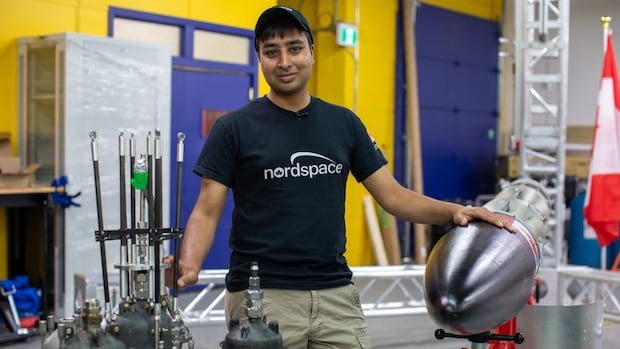On September 29, 1962, Canada’s Alouette I satellite was successfully launched on an American rocket from the Vandenberg Air Force Base in California. This marked Canada as the third country globally, following the former Soviet Union and the United States, to independently design and construct a satellite.
Since then, Canada has actively participated in the space sector, notably developing the Canadarm for satellite deployment from the space shuttle and the Canadarm 2 for building the International Space Station. Additionally, Canadian hardware has been deployed on Mars rovers and satellites journeying to distant asteroids.
Despite these achievements, Canada has never launched rockets into orbit from domestic soil. Two companies, NordSpace and Reaction Dynamics, aim to change this narrative. They assert that this endeavor, though not an immediate necessity, will generate employment opportunities and bolster Canada’s autonomy during a period of increasing self-reliance aspirations.
Rahul Goel, the founder and CEO of NordSpace, emphasized the importance of true sovereign access to space capabilities, advocating for the launch of Canadian-made payload satellites from Canadian rockets and a Canadian spaceport. NordSpace is set to launch its Taiga rocket from Newfoundland next week, with plans for a larger Tundra rocket capable of carrying payloads into orbit by 2027.
On the other hand, Bashar Elzein, the founder and CEO of Reaction Dynamics, envisions a similar trajectory for his company, which recently partnered with Maritime Launch Services in Nova Scotia, Canada’s inaugural commercial spaceport. Elzein highlights the significance of creating a space economy alongside achieving national sovereignty.
Both companies aim to contribute to a burgeoning Canadian space industry, foreseeing the creation of numerous jobs and the establishment of a competitive launch capability. Steve Matier, the founder of MLS, underscores the importance of Canada having the means to deploy its satellites independently, especially considering geopolitical uncertainties.
Furthermore, initiatives like Launch Canada have emerged to foster rocketry advancements in Canada and engage students nationwide in rocket competitions. The Canadian Space Agency recognizes the potential for enhanced technological development and competition with the ability to conduct tests and launches within the country.
The enthusiasm for developing Canadian talent and capabilities within the space industry is palpable, with a shared goal of positioning Canada as a hub for space research and innovation. As the country progresses towards achieving its launch capabilities, there is a growing sense of national pride and recognition of the significance of investing in and building within Canada.

